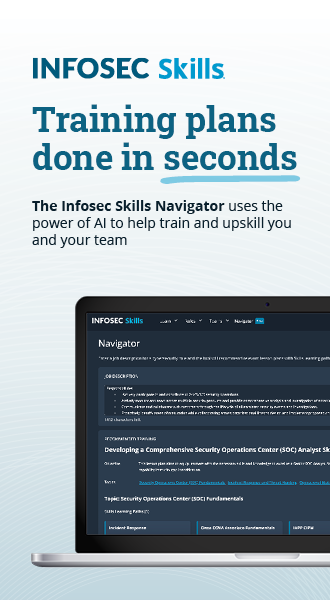Cyber – bullying threats, prevention and solutions
Dr. Sameer Hinduja and Dr. Justin Patchin at the Cyberbullying Research Center define cyberbullying as "willful and continuous harm done using any electronic devices such as a computer, cell phone, etc." and it is especially popular among teenagers. Cyberstalking and cyber-harassment are forms of cyberbullying perpetrated mostly by adults.
The professor of children's mental health at the University of Ottawa, Tracy Vaillancourt, said that "Ninety-nine-point-nine per cent of bullying behavior is repetitive. Bullying does not mean being teased for once" So the iterance of the act is a factor.

What should you learn next?
More details on cyber bullying legislation can be referred from the following fellow topic.
We will be covering a basic scenario, list of potential threats and solutions for cyber bullying.
Scenario
Megan is a high school senior at a large school district in Illinois. After attempting to dye her hair blonde, she ended up with bright green hair. Megan went to school the next day and faced dozens of mean comments from her peers. Jake, one of her classmates, snapped a photo of Megan’s hair and created a meme making fun of her hair mishap.
When Megan got home from school and checked Snapchat, she was devastated by the photo of her hair. It had gone viral, and Megan was terrified to go back to school the next day.
What would you do if you were Megan or the principal of the school in this situation? What would you do if you were Megan’s close friend and wanted to help? Should Jake be punished — how?
Threat
Cyber-bullying is the use of digital technologies with intent to repeatedly offend, humiliate, threaten, harass or deliberately abuse somebody.
Examples of Cyber-bullying include:
- Nasty messages posted online anonymously or sent through mobile phones
- Comments or posts about you.
- Being left out and excluded from online forums and groups.
- Your embarrassing pictures getting viral online, without your permission.
- Hostile chats on online gaming.
- Fake IDs created your name to humiliate you.
Effects
Kids who are cyberbullied are more likely to:
- Use alcohol and drugs
- Experience in-person bullying
- Be unwilling to attend school
- Receive poor grades
- Have lower self-esteem
- Have more health problems
- In extreme cases, commit suicide
Prevention
The prevention of cyber bullying is often neglected. Adoption of proper prevention method may eliminate cyber bullying if not complete elimination, it would be responded back or taken care of.
The following three prevention techniques can be considered:
- Follow your child on social media: To some people, it may feel like challenging online privacy of your child, but at least a guardian or a cousin or a near relative or responsible adult should follow the child on social media so that if there is any such case found where the child is
- Install monitoring software: Now this would be considered extreme privacy violation, but it has beautiful results. This could be used in case of a minor child, and it would also prevent a child from Adult content online. Parents/guardian may check the interaction logs monthly or quarterly.
- Awareness: Children should be aware of the fact that sharing a selfie-photo or video that may not be liked by others may result in cyber bullying. Three instructions should be given to children. First, what is cyber bullying, what are the limits one should chat/talk, and some scenarios would help the child to get a clear picture. Second is what to share and what not to share. The third is if by chance the child is a victim of cyber bullying on any platform of social media, assure them you will help them to fix it.
Cyber bullying prevention and child privacy violation is inversely proportional. Which means if we try to increase prevention, then privacy will go for a toss and if we try to give children complete privacy, then it will be difficult to prevent them from bullying.
Software that helps to manage online behavior
- Norton family premier that can be download from the URL https://us.norton.com/norton-family-premier
- Norton family parental control app https://play.google.com/store/apps/details?id=com.symantec.familysafety&hl=en
- Net Nanny can be downloaded from the URL https://www.netnanny.com/products/
- Qustodio software that can be downloaded from the URL https://www.qustodio.com/en/
- In addition to this software, Microsoft Windows provides internal parental control features. Following is a list of setup and configuration guide to set up parental control for different versions of windows.
- How to set up parental control on Windows 7 https://www.howtogeek.com/howto/10524/how-to-use-parental-controls-in-windows-7/
- How to set up parental control on Windows 8 https://www.cnet.com/how-to/how-to-use-parental-controls-in-windows-8/
- How to set up parental control on Windows 10 http://www.ilovefreesoftware.com/07/windows-10/windows-10-parental-controls-using-family-safety-feature.html
- A good comparison guide of different parental control software can be found on the URL http://in.pcmag.com/parental-control-monitoring/90793/guide/the-best-parental-control-software-of-2017
Almost all the software has the following properties:
- Maintaining a proper Internet schedule.
- Making the internet browsing safer, in the sense of pornography, malware, etc.
- Enforce house rule implemented by parents.
- Supervise online activity.
- Content filtering.
- Social network monitoring, etc.
Solutions
- Never reply to anything that has been said or react back to it. Saying something rude or posting offensive pictures in revenge may even worsen the situation and get you in trouble.
- Screenshot anything that you think could be Cyber-bullying and keep a record of it on your computer.
- Block and report the assaulting users to a social media platform.
- Talk about it. You may not feel it at the time, but you seriously are not alone. Talking to someone about bullying helps you seek support, it documents evidence and will take a huge weight off your shoulders.
- Assess how serious the Cyber-bullying is. If it is some calls from an unknown person, it might be easy just to report and block that user.
- Report it. If you are facing Cyber-bullying from somebody you go to school or college with, report it to a teacher. If somebody is threatening you, spreading out your personal information or making you afraid for yourself, alert the police or any adult that can help you as soon as possible.
- Keep your social media accounts private and do not connect with any unfamiliar person on the social media. They might have ulterior motives and deceive you about their identity, which can put you and the people you care about at danger.
- Talk to them. Sometimes, it may be wise to request that a teacher or responsible adult arrange a session of mediation between the bully and you if you both go to the same school or college. Mediation may be scary but is often found incredibly powerful. It is essentially a face-to-face conversation between you and the bully in a controlled, equal environment.
- Sympathize. You need to know that happy people won't harm or bully others. Most of these bullies are insecure and going through some difficulties, and they might need someone to confide in or have their support.
Report it!
When Cyber-bullying happens, it is important to document and report the behavior so that it can be addressed.
Steps to take immediately
- Do not reply or share cyber-bullying messages.
- Keep proof of cyber-bullying. Keep a record of time, dates and also a description of each occurrence with cyber-bullying. Save any screenshots, mails or text messages and print them so that it can be used to report cyber-bullying to web and cell phone service providers.
- Block the person who is Cyber-bullying.
Report Cyberbullying to online service providers
- Cyber-bullying does not follow the terms and conditions established by social sites and internet service providers.
- Re-assess their terms and conditions and other sections. They explain which content is appropriate and which is not.
- Visit safety centers of social media platforms to learn about blocking any users and how to change settings that can control who can contact you.
- Report the cyber-bullies to social sites so they can take required actions against users violating the terms and conditions.
Report Cyber-bullying to law enforcement
If cyber-bullying consists of following activities, then it should be reported to law enforcement because then it becomes a severe crime:
- Sending threats that indicate violence.
- Pornography of child or send sexual messages or photos
- Taking a photo or video of someone in a place where one would expect privacy
- Stalking and hate crimes
Some states consider other forms of Cyber-bullying criminal. Seek guidance from your state's laws and law enforcement for more information.
Report Cyber-bullying to schools
Cyber-bullying creates a very troublesome environment and resembles in-person bullying. Schools can use the information and make some effective plans and strategies to avoid cyber-bullying.
Many other places have a rule for schools to address Cyber-bullying in their anti-bullying policy. Some laws also cover off-campus behavior that creates an aggressive school environment.










